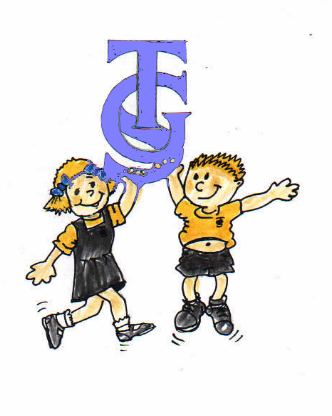Mathematics
Intent
At Trumps Green Infant School, we believe that Mathematics is more than just numbers – its about developing a lifelong love of learning, curiosity and confidence with maths. Our goal is to inspire a genuine love for maths from the very start of each child’s journey. We are committed to helping every child succeed. By fostering a nurturing and encouraging environment, we create positive learning experiences that supports all children in reaching their full potential.
Our intention is to provide a carefully planned curriculum that enables all children’s confidence in mathematics to develop as they move through the school. We follow a maths mastery approach which gradually builds concepts in depth by using small steps of learning, building on prior knowledge and enabling children to make meaningful connections and master each step before moving on. This will allow for all children to become fluent in the fundamentals of maths, developing their conceptual understanding and the ability to recall and apply knowledge rapidly and accurately. Children will be able to reason mathematically by justifying, making links to known facts, or providing proof using mathematical language. Understanding of concepts will be challenged through solving problems by applying their mathematic knowledge. Links within other subjects will be highlighted and skills and mathematical knowledge will be applied. We will equip children with the foundations of mathematics that are essential to everyday life.
Implementation
In EYFS, our youngest mathematicians follow Mastery Number. Through planned, purposeful play and exploration children are given opportunities to develop their mathematical knowledge and deepen their understanding of numbers. Children will explore and begin to spot patterns, solve problems and use an increasing range of mathematical vocabulary to explain their learning.
In KS1, we use Primary Stars and the NCETM (National Centre for Excellence in Mathematics) to sequence our curriculum into building blocks providing coverage, consistency and progression across all year groups. Throughout the school, children progress from concrete models, through pictorial and finally to more abstract learning within lessons and across units of work. A range of concrete resources are available in all classrooms, for children to access to support and deepen their learning.
Fluency and accuracy of key mathematics skills are developed during lessons and we provide an opportunity to revisit and review misconceptions and deepen previously taught content. The delivery and design of our curriculum is planned to ensure a seamless transition between year groups and key stages, including readiness for their next stage of education.
Impact
A variety of methods are used to find out what the children know and understand. Mathematics lessons allow for collaborative learning and thus encourage children to talk in pairs, small groups or through class discussion, to share learning. For those children who grasp concepts rapidly, they will be challenged through a range of problems, whilst those not sufficiently fluent will be provided with opportunities to consolidate their understanding through additional practice and first response intervention. Children’s understanding of taught concepts will be assessed formatively as well as using end of block assessment tasks which provide opportunities for children to demonstrate their understanding fully. Evidence of the children’s learning journey through each Mathematics topic will be recorded in Maths books.
Children in EYFS will be assessed against the Early Years Learning Goal. Children in Year 2 will be assessed against the End of Year 2 Teacher Assessment Framework.
Mathematics monitoring includes work scrutinises, lesson observations and/or learning walks, pupil voice interviews/questionnaires in order to ascertain correct curriculum coverage, the quality of teaching and learning as well as the children’s attitudes to and retention of maths learning. Internal moderations are carried
out 3 times a year, unless teachers wish to moderate with the Mathematics lead more frequently. External moderations are carried out once a year with learning partnership schools. The analysis of this is used to identify areas of development and any children who are not making expected progress.
This information is then used to inform further curriculum developments and provision is adapted accordingly.
